3-Day Local Family Experience: Machu Picchu Relaxation, Sights, & Cuisine
Machu Picchu, Peru
3 days





About Machu Picchu, Peru
Experience the mystical allure of Machu Picchu, Peru, a UNESCO World Heritage Site nestled high in the Andes Mountains. This ancient Incan city, often referred to as the "Lost City of the Incas", offers breathtaking panoramic views and a glimpse into a civilization long past. Explore the intricate stone constructions, terraced fields, and sacred temples that have stood the test of time. Hike the famous Inca Trail, immerse yourself in the rich Peruvian culture, and enjoy the diverse flora and fauna. Whether you're a history enthusiast, an adventure seeker, or a nature lover, Machu Picchu promises an unforgettable journey. Don't miss the chance to witness the sunrise over the ruins, a truly magical spectacle. Come, discover the enigmatic charm of Machu Picchu, a testament to Incan ingenuity and endurance.
3-Day Itinerary
Day 2
Discovering the Sacred Valley and Maras Salt Mines
Morning
Begin your second day with a visit to the Sacred Valley. Explore the Inca ruins at Pisac and Ollantaytambo, and marvel at the agricultural terraces that still function today.
Lunch
Have lunch in a local restaurant in the Sacred Valley, sampling regional specialties like cuy (guinea pig) or chicha morada (purple corn drink).
Afternoon
Spend the afternoon exploring the Maras Salt Mines, where you can learn about the traditional methods of salt extraction and purchase unique souvenirs.
Dinner
Back in Cusco, enjoy a family-friendly dinner featuring Andean fusion cuisine. Don't miss the chance to try a dessert made with lucuma, a native Peruvian fruit.
Evening
Spend the evening at a local theater, enjoying a performance of traditional Peruvian music and dance. It's a great way to immerse yourself in the local culture.
Day 3
Immersing in Cusco's Culture and Cuisine
Morning
On your final day, visit the Sacsayhuaman fortress, an impressive example of Inca stonework. The site also offers panoramic views of Cusco.
Lunch
Enjoy a leisurely lunch in a local café, trying dishes like causa (layered potato dish) or rocoto relleno (stuffed peppers).
Afternoon
Spend the afternoon exploring the San Pedro Market, where you can buy local produce, handicrafts, and souvenirs.
Dinner
For your final dinner, indulge in a gourmet meal at a top-rated restaurant, featuring innovative takes on traditional Peruvian dishes.
Evening
End your trip with a visit to a local pisco bar, where you can sample Peru's national spirit and toast to a memorable journey.
Attractions in Itinerary (10)

1Machu Picchu
One of the New Seven Wonders of the World, Machu Picchu is an ancient Inca city located high in the Andes mountains. It's renowned for its sophisticated dry-stone walls that fuse huge blocks without the use of mortar, intriguing buildings that play on astronomical alignments and panoramic views.

2Sun Gate
Also known as Intipunku, it was the main entrance to Machu Picchu in Inca times and offers a stunning view of the entire complex.

3Temple of the Sun
A significant religious site within the Machu Picchu complex, known for its precise stonework and alignment with the sun during the summer solstice.

4Inca Bridge
An incredible example of Inca engineering, the Inca Bridge is a part of the Machu Picchu site. It's a stone path that winds around a cliff edge with a 20-foot drop where a wooden bridge once existed. It's believed to have served as a secret entrance for the Inca army.

5Sacred Valley
The Sacred Valley of the Incas or the Urubamba Valley is a valley in the Andes of Peru, close to the Inca capital of Cusco and the ancient city of Machu Picchu. It's a major destination for its Inca ruins and traditional Andean villages.

6Pisac
Pisac is a small town in the Sacred Valley that is known for its lively market and Inca ruins. The ruins are a mix of religious, residential, and agricultural structures, offering a glimpse into the Inca's sophisticated society.

7Ollantaytambo
Ollantaytambo is a town and an Inca archaeological site in southern Peru. It's known for the Ollantaytambo ruins, a massive Inca fortress with large stone terraces on a hillside. The main attractions are the Sun Temple and the Princess Baths fountain.

8Maras Salt Mines
An ancient salt mine still in use today, offering a unique view into the Inca's ingenious agricultural techniques.
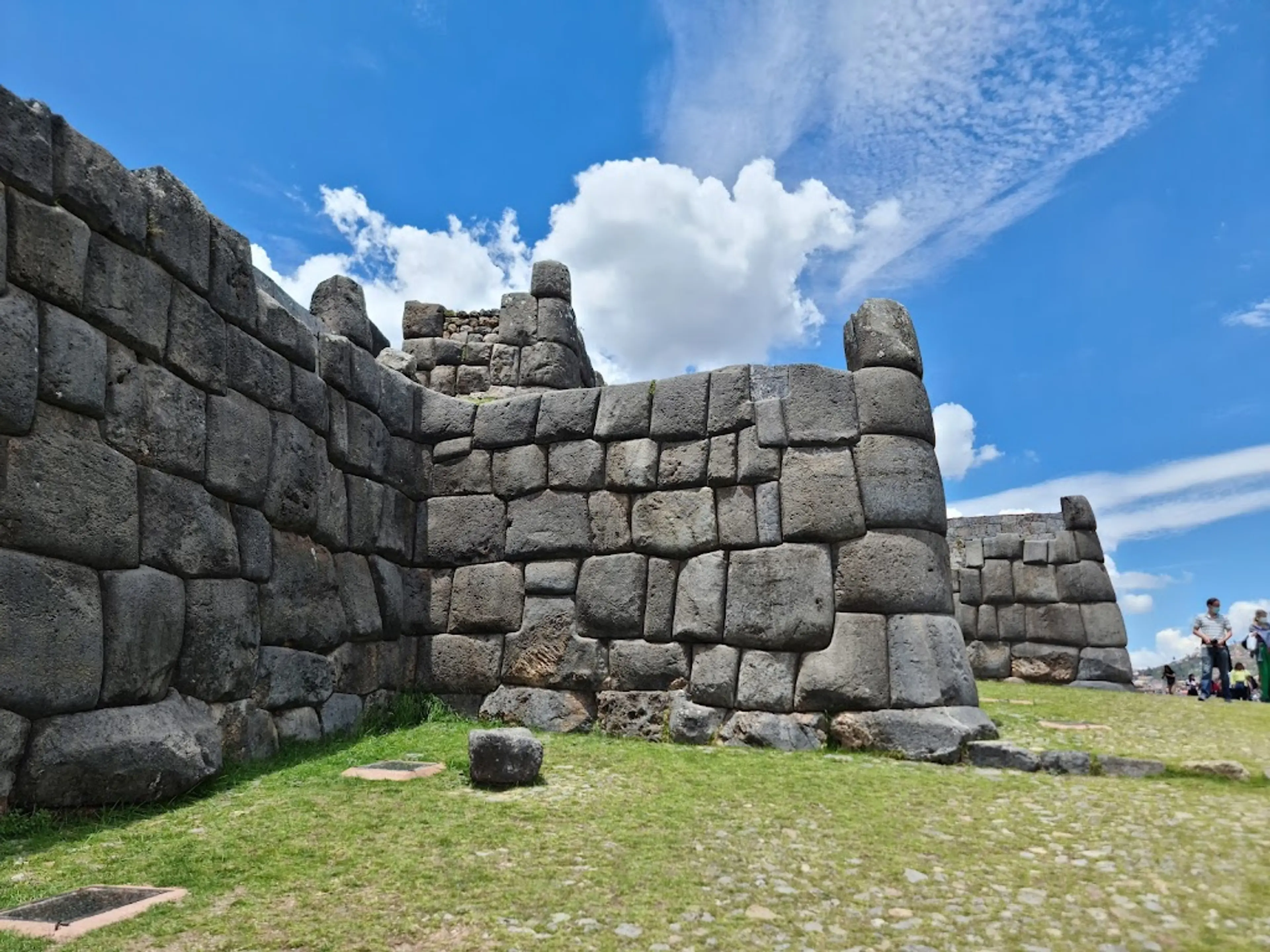
9Sacsayhuaman
Sacsayhuamán is a citadel on the northern outskirts of the city of Cusco, Peru, the historic capital of the Inca Empire.
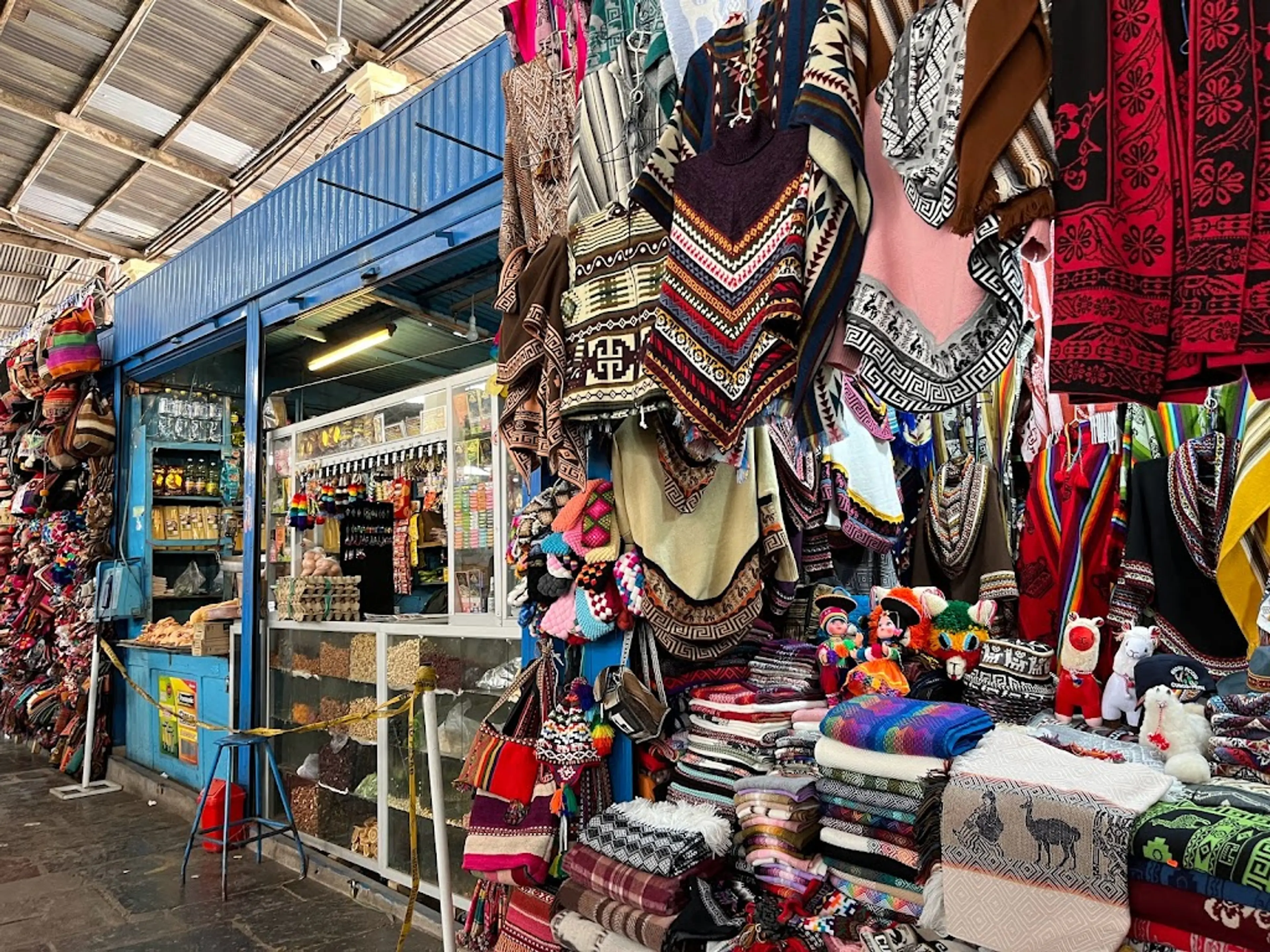
10San Pedro Market
San Pedro Market is a bustling, vibrant market in the heart of Cusco, offering a wide variety of food, clothing, and souvenirs.
Local Food and Drinks (12)

Cuy
Cuy is a traditional Peruvian dish that is essentially roasted guinea pig. It's a must-try for adventurous eaters visiting Machu Picchu.
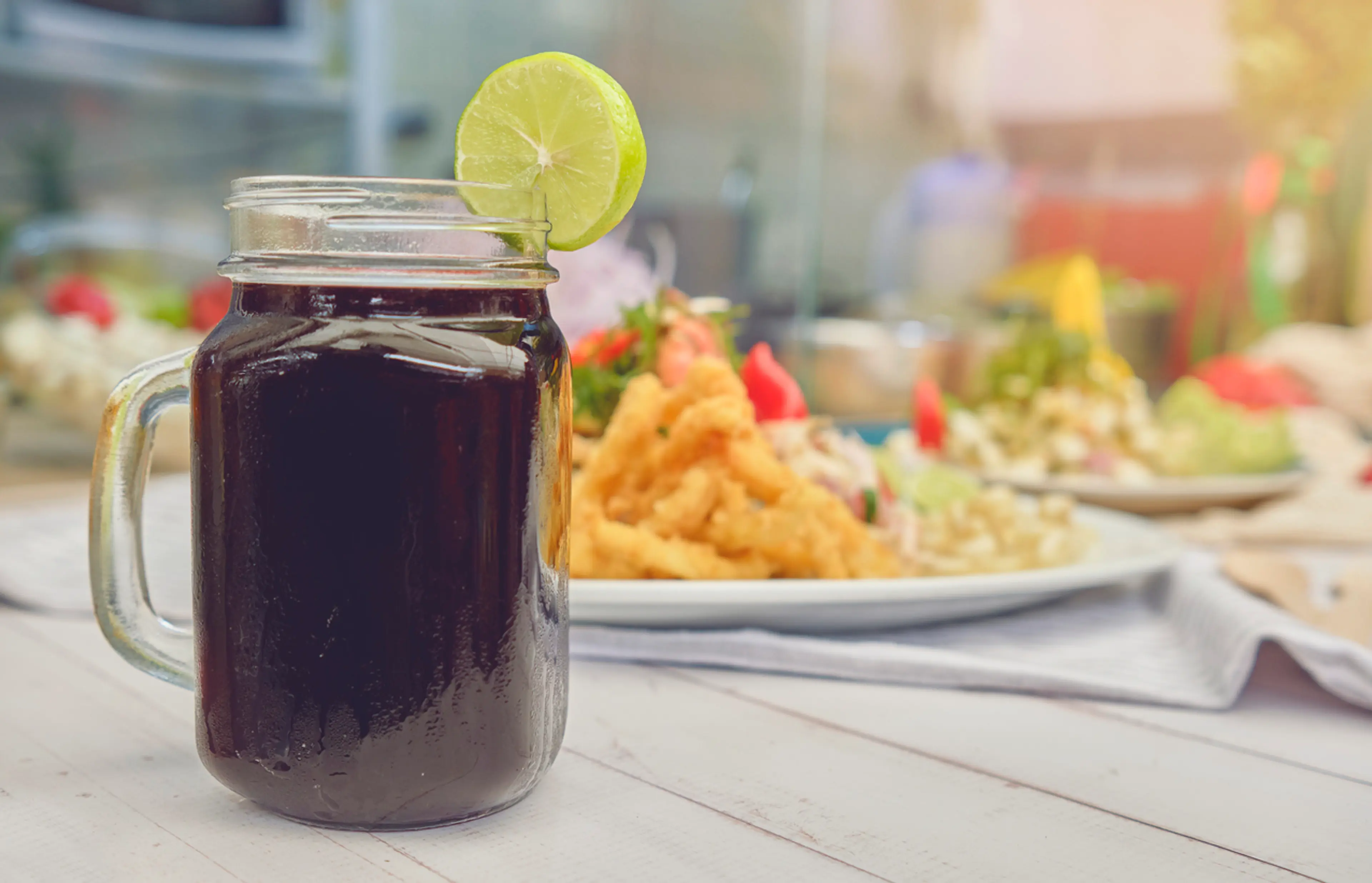
Chicha Morada
Chicha Morada is a sweet Peruvian drink made from purple corn, spices, and sugar. It's a popular refreshment in the region around Machu Picchu.
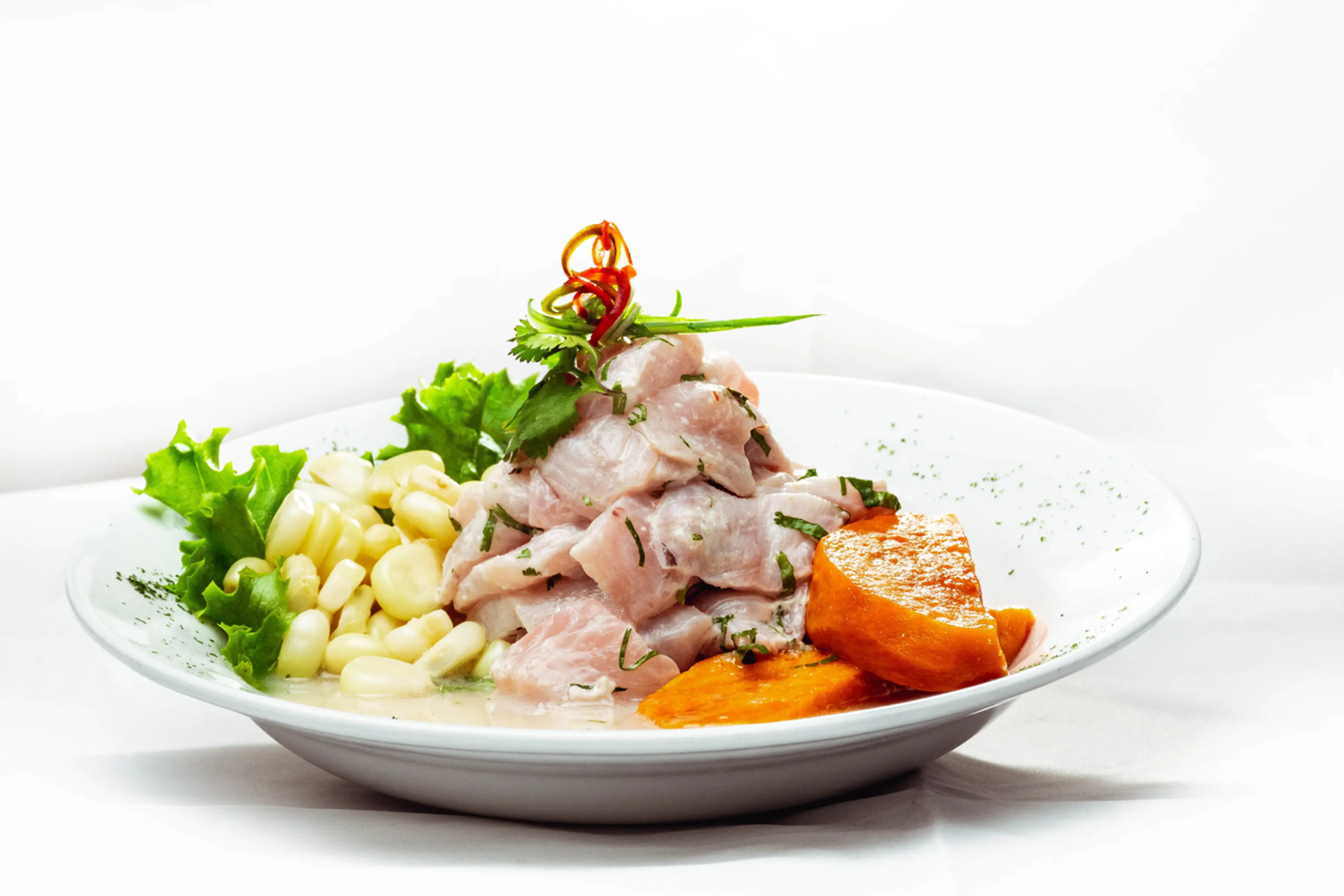
Ceviche
Ceviche is a famous Peruvian dish made from fresh raw fish cured in citrus juices, and spiced with ají, chili peppers, onions, and cilantro. It's a popular dish throughout Peru, including Machu Picchu.

Lomo Saltado
Lomo Saltado is a popular Peruvian stir-fry dish that combines marinated strips of sirloin, tomatoes, onions, and french fries. It's a common dish in the region around Machu Picchu.

Pisco Sour
Pisco Sour is a famous Peruvian cocktail made from pisco (a type of brandy), lime juice, syrup, egg white, and Angostura bitters. It's a must-try for visitors to Machu Picchu.
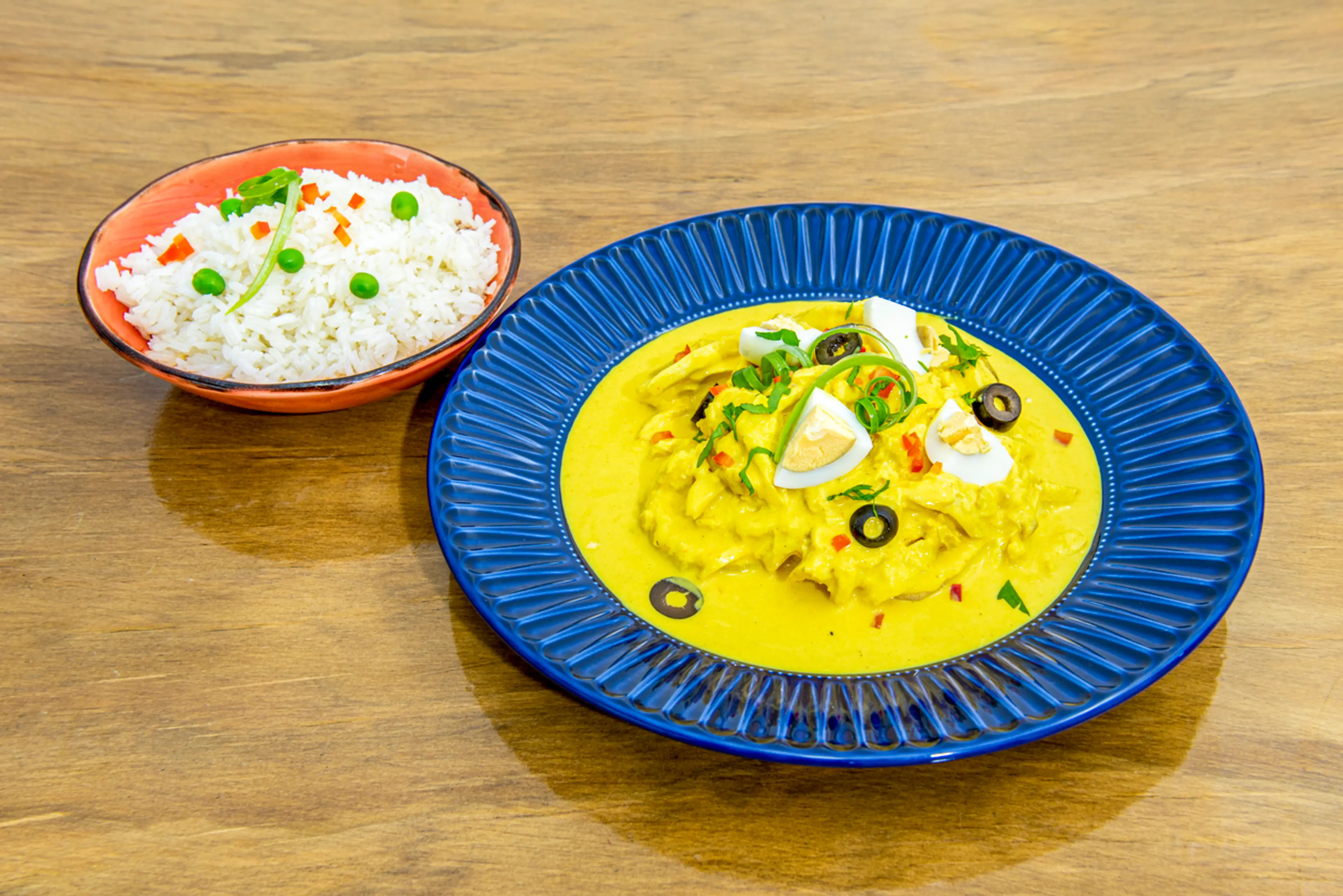
Aji de Gallina
Aji de Gallina is a delicious Peruvian chicken stew made with a creamy yellow chili sauce. It's a common dish in the region around Machu Picchu.

Anticuchos
Anticuchos are Peruvian skewers traditionally made with beef heart, but can also be made with other meats. They're a popular street food in the region around Machu Picchu.

Alfajores
Alfajores are traditional Peruvian cookies filled with dulce de leche. They're a popular sweet treat in the region around Machu Picchu.
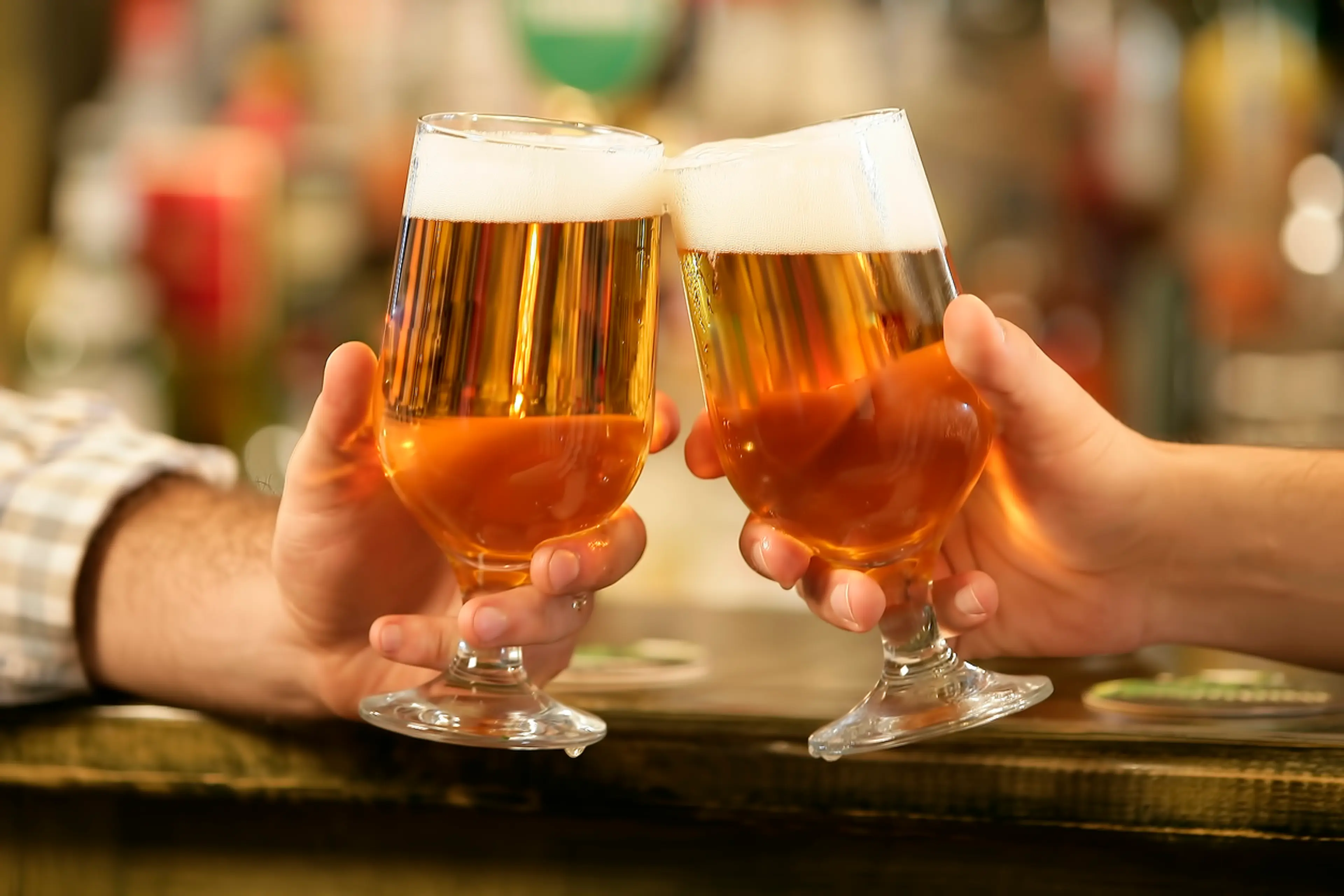
Chicha de Jora
Chicha de Jora is a traditional Peruvian corn beer. It's a popular local drink in the region around Machu Picchu.
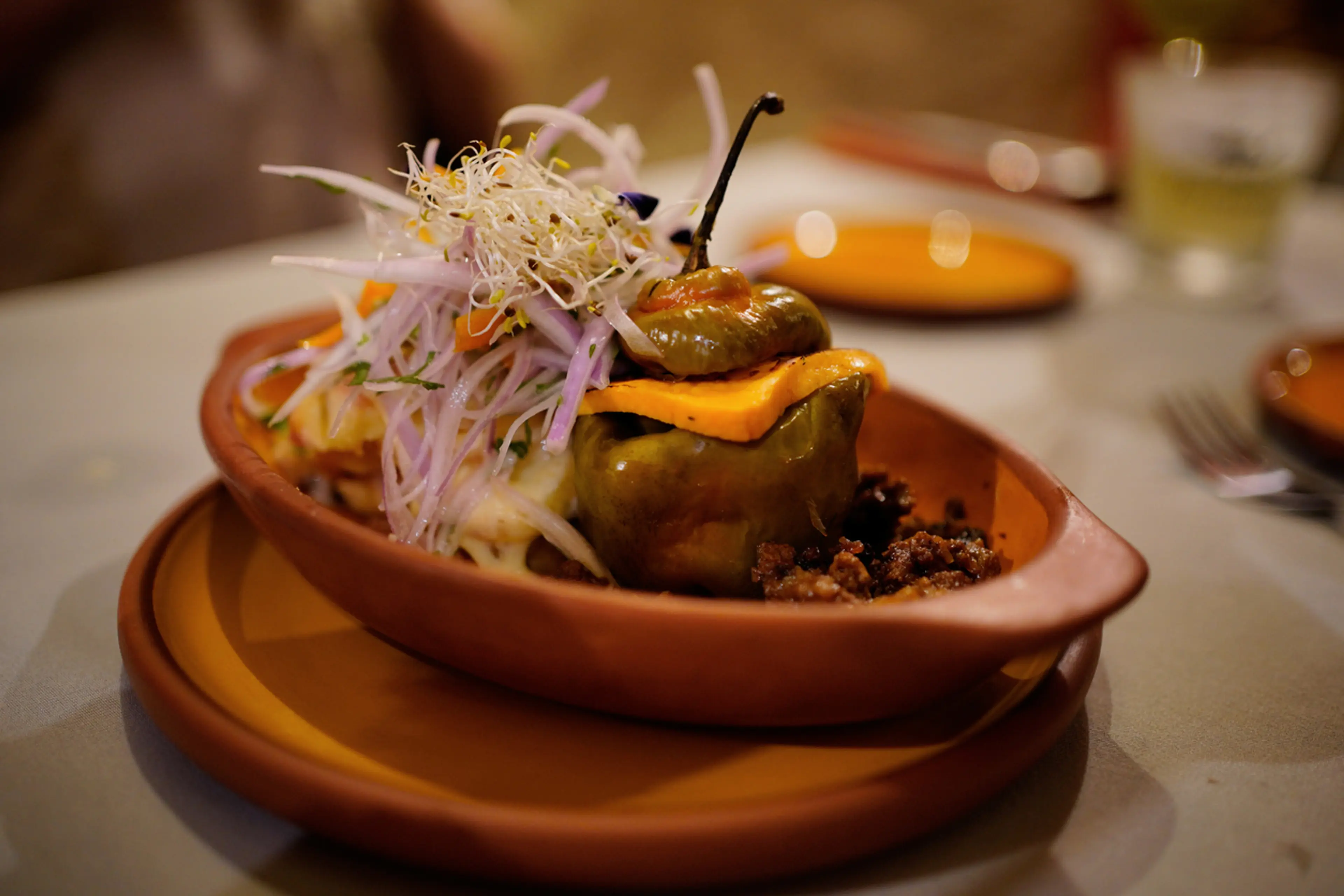
Rocoto Relleno
Rocoto Relleno is a traditional Peruvian dish made with stuffed spicy peppers. It's a common dish in the region around Machu Picchu.

Picarones
Picarones are Peruvian doughnuts made from sweet potato and squash, served with a sweet syrup. They're a popular dessert in the region around Machu Picchu.

Inca Kola
Inca Kola is a popular Peruvian soft drink with a sweet, fruity flavor. It's a must-try for visitors to Machu Picchu.
Best time to visit
The best time to visit Machu Picchu, Peru is during the dry season, which runs from May to September. During these months, you'll have the best chance of clear, sunny days for exploring the ancient Incan city. However, this is also the busiest time of year, so it's recommended to book your trip well in advance. If you prefer fewer crowds, consider visiting during the shoulder months of April and October, when there's a slightly higher chance of rain but fewer tourists.
How to get around
Flight
To get to Machu Picchu, you will first need to fly into the country's capital, Lima, and then take a connecting flight to Cusco. The Alejandro Velasco Astete International Airport in Cusco is the closest airport to Machu Picchu.
Train
From Cusco, you can take a train to the town of Aguas Calientes, which is at the base of Machu Picchu. There are two main train companies that operate this route: PeruRail and Inca Rail. Both offer a variety of services, from budget to luxury, and the journey takes about 3-4 hours.
Bus
Once you arrive in Aguas Calientes, you can take a bus up to the Machu Picchu site. The bus ride takes about 20-30 minutes and buses leave every few minutes from the bus station in Aguas Calientes.
Hiking
For the more adventurous, you can hike the Inca Trail to Machu Picchu. This is a 4-day trek that takes you through stunning Andean landscapes and ancient Inca ruins. Please note that you need to book this trek in advance and it is subject to availability.
Taxi
Taxis are available in Cusco and Aguas Calientes, but not in Machu Picchu itself. They can be a convenient way to get to and from the train station or airport.
Ridesharing
Ridesharing services, such as Uber, are available in Cusco. However, they are not available in Aguas Calientes or Machu Picchu. It's a good option for getting around Cusco or for transfers to the train station or airport.
Foot
Once you're at the Machu Picchu site, the best way to get around is on foot. The site is a pedestrian-only area and there are many steps and terraces to explore. Remember to wear comfortable shoes and take your time to avoid altitude sickness.
Important information
Currency PEN
Time zoneUTC-5
Driving sideRight
Emergency phone011, 5114
Drinking waterOpt for bottled water
Power sockets
Voltage220 V
Things to know about Machu Picchu, Peru as a first time visitor
1
Machu Picchu is located at a high altitude (7,972 feet or 2,430 meters), so be prepared for altitude sickness. Symptoms can include headaches, nausea, and shortness of breath.
2
The best time to visit Machu Picchu is during the dry season, from May to September. However, this is also the busiest time.
3
The site is open year-round, but it can be very rainy from November to March.
4
Only 2,500 visitors are allowed per day, so it's best to book your tickets in advance.
5
There are no bathrooms inside the site. The only facilities are at the entrance, so plan accordingly.
6
There are no food or drink vendors inside Machu Picchu. You are allowed to bring small snacks and water, but no large meals.
7
Dress in layers. The weather can change quickly, and it can be quite cool in the morning and evening, but hot during the day. Temperatures can range from 50-80 degrees Fahrenheit (10-27 degrees Celsius).
8
Wear sturdy, comfortable shoes. The terrain is uneven and can be slippery, especially if it's been raining.
9
There are no trash cans inside the site, so be prepared to carry out any trash you bring in.
10
It's a good idea to hire a guide for your visit. They can provide valuable information about the history and significance of the site.
11
The use of drones is strictly prohibited in Machu Picchu.
12
You are not allowed to touch any of the structures or climb on the ruins.
13
You will need to show your passport to enter the site.
14
There is no public transportation to Machu Picchu. Most people take a train to Aguas Calientes, the town at the base of the mountain, and then a bus to the site.
15
It's a good idea to bring a hat and sunscreen. The sun can be very strong at high altitudes.
16
If you plan to hike the Inca Trail, you will need to book a guided tour. Independent hiking is not allowed.
17
The site is not wheelchair accessible, and there are many steep stairs and uneven paths.
18
Flash photography is not allowed inside the site.
19
It's a good idea to bring insect repellent. There can be many mosquitoes, especially during the rainy season.
20
Remember to stay hydrated. The high altitude can cause dehydration more quickly than at sea level.
Basic Spanish to know as a first time visitor
English phrase | Native phrase | Pronunciation | When to use it |
|---|---|---|---|
Hello | Hola | O-la | Greeting someone |
Goodbye | Adiós | A-dee-os | Leaving or saying goodbye to someone |
Please | Por favor | Por fa-vor | Making a request |
Thank you | Gracias | Gra-see-as | Expressing gratitude |
Yes | Sí | See | Agreeing or confirming |
No | No | No | Disagreeing or denying |
Excuse me | Perdón | Per-don | Getting someone's attention or apologizing |
I don't understand | No entiendo | No en-tee-en-do | When you don't understand what's being said |
Do you speak English? | ¿Hablas inglés? | Ha-blas in-gles | Trying to find someone who speaks English |
Where is...? | ¿Dónde está...? | Don-de es-ta | Asking for directions |
Bathroom | Baño | Ban-yo | Looking for a restroom |
Help | Ayuda | A-yu-da | In case of emergency or needing assistance |
Food | Comida | Co-mi-da | When looking for a place to eat |
Water | Agua | A-gua | When you want to drink water |
Good morning | Buenos días | Bwe-nos dee-as | Greeting someone in the morning |
Good afternoon | Buenas tardes | Bwe-nas tar-des | Greeting someone in the afternoon |
Good night | Buenas noches | Bwe-nas no-ches | Greeting someone in the evening or before bed |
I'm sorry | Lo siento | Lo see-en-to | Apologizing |
How much does it cost? | ¿Cuánto cuesta? | Kwan-to kwes-ta | Asking the price of something |
I would like... | Me gustaría... | Me gus-ta-ree-a | Expressing a desire or making a request |
Packing List
Clothing
Lightweight, breathable clothing
Warm layers for cooler evenings
Rain jacket or poncho
Hiking boots
Comfortable walking shoes
Hat for sun protection
Sunglasses
Swimsuit (for hot springs in Aguas Calientes)
Underwear and socks
Sleepwear
Toiletries
Travel-sized shampoo and conditioner
Body wash or soap
Toothbrush and toothpaste
Deodorant
Sunscreen
Insect repellent
First aid kit with band-aids, antiseptic wipes, and tweezers
Prescription medications
Over-the-counter medicine (pain relievers, anti-diarrhea, etc.)
Hand sanitizer
Travel-sized tissues
Lip balm with SPF
Travel documents and essentials
Passport
Driver’s license or ID card
Credit and debit cards
Cash (Peruvian Sol)
Travel insurance documents
Hotel and tour confirmations
Emergency contact information
Copy of passport and other ID
Electronics and gadgets
Smartphone
Charger and adapter
Camera
Extra memory cards
Portable power bank
Headphones
Travel alarm clock
Miscellaneous items
Daypack for hikes
Reusable water bottle
Snacks for hiking
Travel pillow and blanket
Earplugs and eye mask
Travel guidebook
Binoculars
Travel-sized laundry detergent
Ziplock bags for keeping items dry
Weather Conditions
When planning a trip to Machu Picchu, it's important to consider the weather as it can greatly impact your experience. Machu Picchu, located in the Andes Mountains of Peru, experiences a subtropical highland climate with two distinct seasons: the dry season (May to September) and the wet season (October to April). During the dry season, you can expect clear, sunny days with temperatures ranging from 50°F to 75°F (10°C to 24°C). This is the best time to visit if you're planning on hiking the Inca Trail or exploring the ruins extensively, as the weather is more predictable and the trails are less slippery. However, it's also the busiest time of year, so be prepared for crowds. The wet season brings frequent, heavy rains, particularly in the months of January and February. Temperatures during this time range from 45°F to 68°F (7°C to 20°C). While the rain can make hiking more challenging and the ruins may be shrouded in mist, the landscape is beautifully lush and the site is less crowded. Regardless of the season, mornings at Machu Picchu often start with mist that clears as the day progresses. Also, due to the high altitude, the sun can be intense, so be sure to pack sun protection including a hat, sunglasses, and sunscreen. In terms of clothing, layers are key. Temperatures can fluctuate greatly throughout the day, so it's best to dress in layers that can be added or removed as needed. Waterproof clothing and footwear are also recommended, especially during the wet season. Remember, the weather can be unpredictable, so it's always a good idea to check the forecast before your visit and be prepared for a variety of conditions.
| Month | Hi / Lo (°C) | Weather Overview |
|---|---|---|
January | 22° / 7° | January is the wettest month in Machu Picchu, with frequent rain showers. Despite the rain, temperatures are relatively warm, ranging from 7 to 22 degrees Celsius. |
February | 23° / 8° | February continues the rainy season, with warm temperatures similar to January. It's also the month when the Inca Trail is closed for maintenance. |
March | 23° / 8° | March sees the end of the rainy season, with temperatures remaining warm. The landscape is particularly lush and green this time of year. |
April | 22° / 7° | April offers a balance of mild temperatures and reduced rainfall. It's a good time to visit to avoid the peak tourist season. |
May | 20° / 2° | May marks the beginning of the dry season, with cooler temperatures and clear skies. It's an excellent time for hiking and outdoor activities. |
June | 18° / 0° | June is the coldest month, but also one of the driest. The clear skies offer excellent views of the surrounding mountains. |
July | 18° / 0° | July continues the trend of cold, dry weather. Despite the chill, it's a popular month for tourism due to the clear skies and minimal rainfall. |
August | 20° / 2° | August sees a slight increase in temperature, but remains dry. It's another popular month for tourists, offering great conditions for hiking. |
September | 21° / 4° | September marks the end of the dry season, with a slight increase in temperature and rainfall. The weather remains good for outdoor activities. |
October | 22° / 6° | October sees a further increase in temperature and rainfall. The weather is still pleasant, but pack a raincoat just in case. |
November | 22° / 7° | November is a transitional month, with increasing rainfall but warm temperatures. The crowds are fewer, making it a good time to visit for those who don't mind a bit of rain. |
December | 22° / 7° | December is the start of the rainy season, but temperatures remain warm. Despite the rain, it's a popular time to visit due to the holiday season. |
Did you know?
Places near by Machu Picchu, Peru

Cusco
Historic city known for its unique blend of Spanish and Inca cultures

Sacred Valley
A region in Peru's Andean highlands with numerous archaeological sites and villages

Ollantaytambo
A town in the Sacred Valley with an ancient Inca fortress

Pisac
Known for its bustling market and Inca ruins

Maras Salt Mines
A stunning collection of salt pans, used for salt extraction since Inca times

Moray
An archaeological site featuring unique Inca ruins

Choquequirao
Often called the 'sister' of Machu Picchu, it is a lesser-known Inca ruin

Vinicunca (Rainbow Mountain)
A mountain with naturally multicolored slopes due to mineral deposits

Quillabamba
A city known for its coffee plantations and hot springs

Aguas Calientes
A town with hot springs and the closest access point to Machu Picchu


